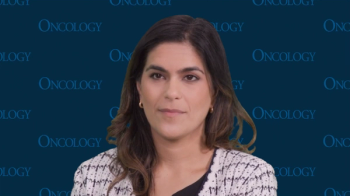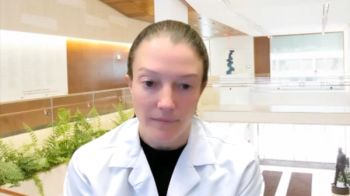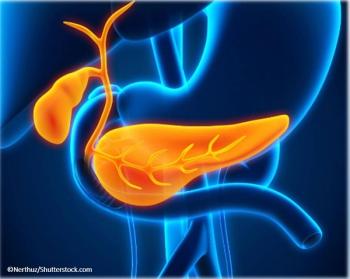
An indirect comparison supports continuous therapy with zanubrutinib as a valuable treatment option in treatment-naïve CLL or SLL.

Your AI-Trained Oncology Knowledge Connection!


An indirect comparison supports continuous therapy with zanubrutinib as a valuable treatment option in treatment-naïve CLL or SLL.

CRS, neurotoxicities, and infections are the most common AEs associated with BCMA- and GPRC5D-directed therapies in patients with multiple myeloma.

Data from KOMET-001 support ziftomenib as a new potential option for patients with relapsed/refractory NPM1-mutated acute myeloid leukemia.

Physicians are no longer required to have special certification to administer vandetanib to patients with medullary thyroid cancer.

Experts at City of Hope explore innovative immunotherapy strategies for non-small cell lung cancer, highlighting efficacy and toxicity management in treatment.

A 2-way communication between providers and patients may help facilitate dose modifications to help better manage adverse effects.

Black patients experienced lower survival rates across cancer types and several categories of urbanicity, particularly in breast and colorectal cancers.

Data from the phase 3 EMBER-3 trial support the approval of imlunestrant in this breast cancer population.

Treatment with AML depends on a variety of factors, including stage of treatment, transplant eligibility, and mutational status.

Experts weigh in on tumor-informed testing, false positives, relevant trial data, and other key concepts related to circulating tumor DNA.

Experts discuss key considerations for applying ctDNA to clinical practice, such as distinguishing between tumor-informed and tumor-uninformed testing.

Atebimetinib with gemcitabine and nab-paclitaxel achieved 9-month OS and PFS of 86% and 53%, respectively, in patients with pancreatic cancer in frontline settings.

The frontline treatment algorithm in SCLC is poised to look “radically different” in the upcoming years, according to Anne Chiang, MD, PhD.

In an interim safety analysis, no dose-limiting toxicities, unexpected AEs, or grade 3/4 AEs were reported in 10 patients treated for metastatic CRPC.

Oncologists are still working on management strategies for neuropathy; a common adverse effect related to chemotherapeutics for ovarian cancer.

In patients with ES-ECLC treated with chemotherapy and immunotherapy, stereotactic body radiation therapy did not significantly improve overall survival.

Results from the phase 3 DESTINY-Breast09 trial will support the FDA’s decision on whether to approve T-DXd plus pertuzumab in frontline metastatic breast cancer.


CAR T-cell therapies or other agents that affect the immune system in the long term may be important to keep in mind for the management of SCLC.

ACR-accredited radiation oncology practices will now be eligible to apply for an advanced quality recognition program developed by ACRO and RSS.

Marc S. Raab, MD, PhD, details how agents such as carfilzomib may play a role in treatment after progression on teclistamab-based induction therapy.

Genetic testing information can be used to risk-stratify ovarian cancer survivors for breast cancer, particularly those with BRCA1 or BRCA2 mutations.

Patients with mantle cell lymphoma who are older and have less fitness may be eligible for regimens that include bendamustine/rituximab.

IMNN-001 exhibits prolonged favorable safety among patients with advanced newly diagnosed ovarian cancer.

Employing patient-reported outcomes may help include those with small cell lung cancer in the shared decision-making process.

Genetic testing for ovarian cancer may help inform treatment decisions for patients with advanced disease, particularly regarding PARP inhibitor use.

Data from the phase 3 evERA trial show a trend toward improved overall survival with giredestrant plus everolimus in this breast cancer population.

The median PFS was not reached with daratumumab-lenalidomide maintenance after a median follow-up of 49 months in those with multiple myeloma.

At 30 months, mitazalimab plus mFOLFIRINOX achieved an OS rate of 21% in patients with previously untreated metastatic PDAC.

Daniel C. McFarland, DO; and guest William S. Breitbart, MD, discuss the critical role of meaning-centered therapy in addressing the psychosocial needs of patients with cancer.